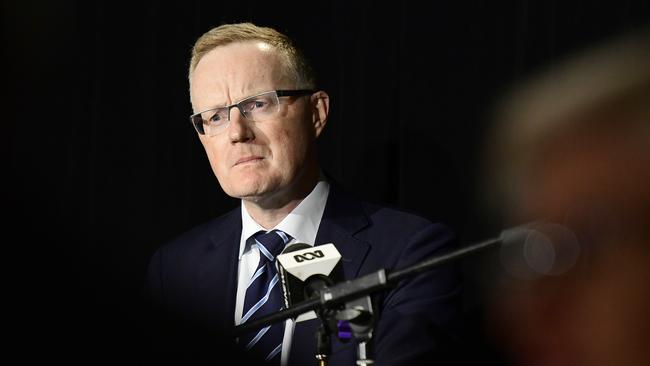RBA to slash rates to 0.25pc by end of the year: Deutsche Bank
The central bank will cut rates to just 0.25pc by the end of the year, predicts Deutsche Bank.

Central banks in Australia and New Zealand will slash their official cash rates to just 0.25 per cent by the end of the year from 1 per cent currently amid a growing risk of a global recession, according to Deutsche Bank economist Phil O’Donoghoe.
Whereas he previously forecast that the Reserve Bank of Australia would hold its cash rate at the current record for the next 12 months, Mr O’Donoghoe now sees the RBA cutting again in September, October and November.
The analyst predicts the Reserve Bank of New Zealand will deliver another 50 basis point cut in September and a 25 basis point cut in November.
It comes as the recent escalation of trade tensions has “materially increased the probabilities of a global recession”.
With the estimated chance of US recession in the next year rising to about 30 per cent, near the highest since the global financial crisis, US 10-year bond yields could “very plausibly” fall below 1.50 per cent, pressuring long-term yields in Australia and New Zealand, as well.
“Consistent with that global ‘race to zero’, Australia’s three-month-bills/10-year bonds yield curve has inverted in recent days,” said Deutsche Bank economist Phil O’Donoghoe.
“With the exception of the pre-GFC ‘high inflation’ period, the RBA has almost always responded to an inverted curve with policy easing.”
Mr O’Donoghoe says a further 75 basis points of easing pre-emptively would “circumvent the risk of having to deliver 100 bps of easing and suffer the negative externalities associated with a defunct overnight cash rate”.
But that would leave the cash rate in both countries near zero, effectively neutralising conventional monetary policy.
“Short of a rapid turnaround in global sentiment, which looks increasingly unlikely at the current juncture, the market would then naturally begin to actively price negative cash rate and quantitative easing scenarios,” Mr O’Donoghoe said.
“Better, in our view, to pursue as much conventional easing as possible, as quickly as possible, to fend off those scenarios.”
It comes as RBA Governor Philip Lowe told the House of Representatives economics committee today that the RBA would consider unconventional monetary policy if economic growth fell short of expectations, unemployment rose, and inflation remained weak.
“Extreme unconventional policy measures would need to be on the table,” Dr Lowe said.
“We would need to look at all monetary options, fiscal options and structural options.”
Dr Lowe added that: “We’d need to be very close to zero to do that. We’ve got scope to lower interest rates at least a couple times more.”




To join the conversation, please log in. Don't have an account? Register
Join the conversation, you are commenting as Logout